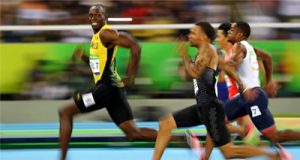Horse racing is one of the most popular forms of gambling in the world. You’ll hardly find a horse racing event that isn’t flooded with ticket writers who are always ready to take your bets. The only exception you’ll find is when horse racing has been banned from the track. While the history of horse racing can’t be traced, the earliest record of betting on horse racing can be traced to the 1600s during the reign of King James in the United Kingdom. There are different ways to bet on horse racing. Whether you’re trying to place a basic bet you’re going for the more complicated options with tougher odds and higher rewards, there is a lot of money to be made from horse racing whether you own a horse or not. If you’ve been in the horse race betting game for a long time, you probably already know some of the basic glossaries of Australian and New Zealand punting. If you’re new to the betting game, learning these words and phrases will help you stay on top of your game.

Glossary of Australian and New Zealand Punting
The glossary of Australian and New Zealand punting is a compilation of words, slangs, phrases, and jargon that are used in the horse racing and betting industries. If you don’t know the basic terms and their applications, following up with horse racing media will be difficult for you. We can’t list all the terms so we will focus on the most common ones.
1. Punters
A punter is an individual who gambles or loves to make risky investments. While the word can apply to any other form of gambling, it is most commonly used in the horse racing space. Keep in mind that a punter is typically a professional gambler with ample experience in betting.

2. Bowling
Bowling refers to when a body of punters use another group of people to place bets from different locations at the same time. The punters are usually professional gamblers who want to increase their chances of winning. By asking the bowlers, usually made up of less professional gamblers, to place bets for them, they stand to win big. The money for the wager will come from the punters and a percentage of the earnings will be paid to bowlers. The punters can either decide to place the same bet across locations or change the bets to increase their chances of winning even more.
3. Apprentice
In the horse racing space, an apprentice means pretty much the same thing it means in every other industry. It refers to a young horse racer in training. In the past, only people under 21 years could study as apprentices. However, older people interested in becoming professional horse racers can now be referred to as apprentices. They can work their way through apprenticeship like other young jockeys until they become professionals.
4. Apprenticeship Allowance
The apprenticeship allowance is also called ‘claim”. Typically, horses are expected to carry a specific weight. When an apprentice wants to ride a horse, the weight the horse is expected to carry is reduced by anything between 1.5 to 4kg. This reduction is what is referred to as the apprenticeship allowance. In the past, the maximum allowance was 3kg. However, the rules have changed and the apprentices can claim up to 4kg.
5. Handicap and Handicapper
The apprenticeship allowance and every other weight that will be carried by a horse is usually classified into different ranges. This range is what is referred to as the handicap. The horse racing official who assigns the weight for each horse ahead of the race is called the handicapper.
6. Binoculars in Horse Racing
Binoculars are typically used during horse racing events since they allow the officials to see horses and jockeys from a distance. The most common binoculars used in horse racing are the ones with 7×50 mm magnification and 10×50 magnification. However, you’re not going to hear any official, racer, or professional gambler call out the name of this device. You’ll simply hear them say 750s for binoculars with 7×50 mm magnification and 10-50s for binoculars with 10×50 mm magnification.
7. The B Words in Horse Racing
You’re bound to hear many B words when you’re watching a horse race or you’re betting on an event. First of all, the letter “B” refers to a bay horse. This is what Bay horses are called in stud books, pedigrees, and even racebooks. Some other B words you’ll come across are Back, Backed in, Backed off the map, and Back up. These ones are easy to remember. When you say “this is the horse I want to back” it means that’s the horse you’re betting on. When the odds for a particular horse has shortened, you can say the horse has Backed in. When too many people are betting on the same horse and the odds decrease significantly because of that, you can say the horse has been “backed off the map”. One word that has more than one meaning in the house racing space is back up. It can either be used to describe a situation in which the punters keep backing one horse or when a horse is made to race again shortly after it completes a race. There are many other B words in the glossary of Australian and New Zealand punting.
8. Bet Until Your Nose Bleeds
This statement might be figurative but it is rather straightforward. It can come from anyone but it is normally said when someone has full confidence in the ability of a horse to win a race. A punter can either say it to bowlers, or a racer can say it to a punter. Just about anyone in the stadium can use this phrase. Since a nosebleed has nothing to do with betting, asking a person to bet until their nose bleeds simply means you’re asking them to bet aggressively.
9. Bleeder
It’s not unusual for previously fit horses to bleed from their lungs after a race or during a workout. Bleeding horses may be forced to stop racing for a while. The rules regarding this vary from country to country. For example, a bleeding horse in Australia may be allowed to return to the tracks after three months if the bleeding happens only once. If the horse bleeds again after returning to the tracks, it will be banned from racing for life.
10. Acceptor, Approximates, and Asparagus
In the horse racing world, the acceptor is what you call a horse that has been screened and confirmed to join a race by the owner and the officials. When all the acceptors have been listed and the punters are ready to bet, the TAB prices will be displayed for everyone to see before the race starts. This is called the approximate. Asparagus, on the other hand, is the name punters are given when they arrive with a stack of mail.
11. Farrier
Horses have natural hooves on their limbs that are strong and sturdy. These hooves allow them to move around comfortably just like your feet make things easier for your legs. However, racehorses and horses that are recruited for pulling heavy loads, need shoes. It is the person who shoes these horses that are known as a farrier. Farrier shoe thoroughbred racehorses make a pretty penny for their work. They can earn up to $200,000 yearly. Keep in mind that thoroughbred is a breed of hot-blooded horse that is known specifically for its agility in racing. Some people call all purebred horses thoroughbred but you need to know the difference if you are developing interest in the horse racing industry.
12. Box, Box Seat, and Banker
Punters typically place bets on one or two possible odds as at time Box in horse racing is the same as a box in other types of betting. It refers to a combination bet that involves placing bets on all the existing numeric outcomes for a particular race. It is a good way to maximize your chances of winning. The box seat refers to a specific position in a horse race that comes one horse behind the leaders and one horse off the fence. Banker refers to the best set of exotic bets that are sure to guarantee a win. Punters who make a wager on bankers are almost certain that they will get returns for their investment.
13. Bet Back and Better than Interest
Bookmarkers are said to bet back when they spread the risk of betting on a horse that they are committed to by investing with the totalisator or other bookmarkers. A punter uses the phrase “better than bank interest” when they are trying to wager on a horse with short odds. It is the phrase they use to justify their actions.
There are many other words in the glossary of Australian and New Zealand punting that aren’t listed above. As you get more involved with horse racing and betting, you will add more words to your vocabulary naturally. Until you’ve mastered all the most commonly used words, a quick Google search will always help you out when you get confused.




